Op-Ed
LBJ Doesn’t Deserve Credit for Selma
By Diane Nash
NNPA Guest Columnist
Joseph Califano’s statement that Selma was Lyndon B. Johnson’s idea is patently false. Although the Student Nonviolent Coordinating Committee (SNCC) had come to Alabama earlier to organize to obtain the right to vote, for me, the Alabama Right to Vote movement began the day the four little girls were killed in the 16th Street Baptist Church bombing in Birmingham.
That was Sunday, September 15, 1963 – before Lyndon Johnson became president.
James Bevel, my-then husband, and I believed that a man and a woman would not allow those four little girls to be murdered and do nothing.
On that fateful Sunday, in Edenton, N. C. in Golden and Mrs. Frinks’ living room (Golden Frinks was a Southern Christian Leadership Conference (SCLC) staff person.), James Bevel and I conceptualized and wrote the plan that became the Selma Right to Vote movement. We believed that if Negroes in Alabama could vote, they could better protect their children from things like the church bombing.
Bevel and I resolved that no matter how long it would take, we would get the right to vote in Alabama. We took the plan to SCLC and subsequently, SCLC, including us as staff persons, began organizing in Alabama for the right to vote.
When Jimmie Lee Jackson was killed, (He died February 26, 1965), Bevel said we should take his body to Gov. George C. Wallace and present to Wallace the results of his racist policies. Within a day or so, Bevel apparently recognized that Jackson should be buried and modified his proposal. He called for the Selma-to-Montgomery march.
Lyndon Johnson was president—the executive branch of the federal government. It was his job to enforce the law. He should not have waited until Jimmie Lee Jackson’s, James Reeb’s and Viola Liuzzo’s lives were taken. He should not have waited until people were beaten and bloodied on Pettus Bridge before he enforced Negroes’ right to vote in the South. I appreciate LBJ’s enacting and signing the Voting Rights Act, but I wish he had been a self-starter when it came to our right to vote, so it would not have been necessary to go to the lengths that we did—organizing a mass movement and risking our safety–in order to get the vote.
It was the courage, work, thoughtfulness, sacrifice, discipline and determination of citizens of the United States that obtained our right to vote.
Historically, inventions, musical innovations and many more accomplishments and contributions developed by descendants of enslaved Africans in America have been misappropriated. We learn about presidents, battles and dates. The impression too often perpetuated in history books and in popular culture is that that you have to be a president, someone special or White to have an important idea or to achieve major accomplishments. This is an idea that disempowers citizens and should not be propagated further.
Diane Nash, a native of Chicago, was instrumental as a change agent in the nonviolent movement for civil rights that began in 1959 when she was a student at Fisk University. In 1960, she became one of the founders of the Student Nonviolent Coordinating Committee (SNCC) and from 1961-1965 was actively working with SNCC and the Southern Christian Leadership Conference (SCLC). Today, she continues her work as an activist in civil rights and peace issues.
###
Commentary
Commentary: Racism? Sexism? Ageism Is Worse. Ask Joe Biden
Don’t worry about President Joe Biden’s age or memory. Worry about how he has to confront ageism. Thanks to a certain Asian American special prosecutor named Robert Hur.
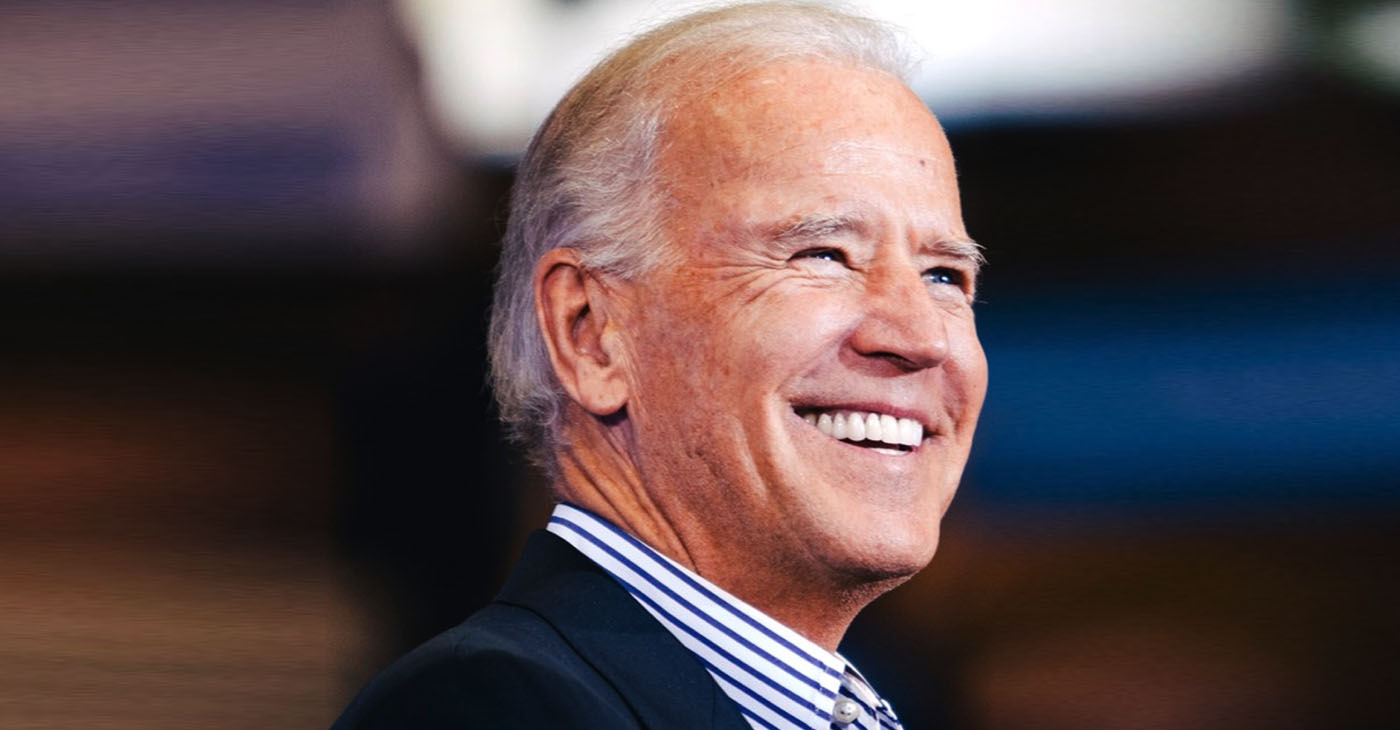
By Emil Guillermo
Don’t worry about President Joe Biden’s age or memory.
Worry about how he has to confront ageism. Thanks to a certain Asian American special prosecutor named Robert Hur.
Hur went beyond and below the call of duty in political slander of the President.
Hur’s investigation concluded: there would be no prosecution against Biden for any mishandling of classified documents. So why wasn’t that the big headline last week?
Once it was determined there was not enough evidence to prosecute the president, Hur’s work was done.
Instead, Hur took a year to finish a nearly 400-page report that many mainstream news outlets have since mischaracterized. For example, CNBC’s headline quoted Hur: “Biden ‘willfully’ kept classified materials, had ‘poor memory’: Special counsel.”
Unfortunately, it’s misleading. By how much? On the Just Security website, two prominent law professors found Hur’s report actually described Biden’s statements as “innocent explanations.”
“Unrefuted innocent explanations,” say Prof. Andrew Weissmann and Prof. Ryan Goodman, doesn’t just mean the “case does not meet the standard for criminal prosecution — it means innocence.”
But no one walks away from the mainstream headlines about the report thinking Biden is innocent; Only that he “willfully” retained something classified, and he has a “poor memory.”
None of it adds up to a prosecution. Just a public persecution.
Is this the game being played by Hur, a Trump appointee to the Justice Department, who was named special prosecutor last year by Attorney General Merrick Garland?
Garland must have thought it was a stroke of genius to appoint a Trump Republican in a political year to investigate his Democratic boss. That would be a sign of unity in the fight for truth and justice, right?
It wasn’t.
Hur, the son of South Korean immigrants and a Harvard grad, has said all the right things in public statements: that he’d be “fair, impartial and dispassionate,” and would “follow the facts swiftly and thoroughly, without fear or favor.”
Right.
Or is that right-wing?
Hur’s speculative comments about Biden’s memory were challenged last Sunday by Biden’s personal attorney, Bob Bauer who witnessed Hur’s deposing of Biden.
On CBS’ “Face the Nation,” Bauer called Hur’s report a “shabby piece of work,” that reached the right legal conclusion, but then was loaded with hundreds of pages of “misstatements of facts and totally inappropriate and pejorative comments that are unfounded and not supported by the record.”
Hur appears to have padded the report to buttress his own standing among Republicans. He makes memory a relevant issue when he uses it as an excuse to not prosecute Biden.
With no basis for a legal prosecution, Hur made sure to go for the political kill and let loose the virus that is ageism.
I once thought ageism would unite us all. We may not all be the same race, ethnicity, or gender, but we all fight time and the aging process.
But how naïve I was. Ageism can also inspire division, creating generation gaps, all charged with emotions that fuel a discrimination harder to fight than racism.
Of course, it cuts both ways. Last weekend, Donald Trump, 77, said Russia should be able to do “whatever the hell they want” to NATO members who don’t meet their defense spending targets.
The man who wants to be president again is backing our enemy Putin against our allies.
Is that Trump showing off his anti-democracy bent or his senility?
That’s why ageism has become a dominant theme for both parties and is likely to hang around.
It won’t age well, unless we all know the truth about Hur’s misleading report.
The controversy has thrust Vice President Kamala Harris into the limelight, as she defended Biden and called Hur’s report “clearly politically motivated (and) gratuitous.”
Harris’ detractors have been sniping at her from day one with healthy doses of racism and sexism. Now, you can add ageism to the Republican tool set, a nasty political trifecta, as the GOP continues to hammer Biden and the Democrats with the misleading Hur report.
About the Author
Emil Guillermo is a journalist and commentator. See him on YouTube.com/@emilamok1
Activism
Will New City Leaders End Oakland’s Long-Time Cozy Relationship with Corporate Developers?
Geoffrey Pete’s building at 410 14th St. is a Registered National Resource Building on the State of California Register as well as a contributing building to the Historic Downtown Oakland District on the State of California Register and the National Department of Interior historic registers.

By Ken Epstein
New research, produced by supporters of Geoffrey’s Inner Circle and the Black Arts Movement and Business District, has provided powerful evidence against giving a greenlight to Tidewater Capital’s 40-story luxury apartment building at 1431 Franklin St., inches from owner Geoffrey Pete’s historic venue.
According to the research, which has been shared with Mayor Sheng Thao, arguments in favor of Tidewater Capital’s proposal seem to be based on inaccurate facts, which some believe have their origin among past mayoral administrations and city administrators, the planning commission and city staff who for years allowed corporate development to ravage Oakland’s diverse communities while trying to convince residents that there is no alternative to gentrification.
State does not require project’s approval
Some who support allowing Tidewater’s project to be built have maintained that the state would likely revoke Oakland’s affordable housing funds if the city does not approve this high-end real estate project.
However, this interpretation does not seem to be based on an accurate reading of the law. The state’s “Prohousing Designation Program is what is believed by city officials to prevent Oakland from denying new residential development at the risk of losing their designation” and related funding, according to the research document.
The new research has found instead that “Oakland’s housing element is considered to be in ‘full compliance’ with state law, (and) the city no longer has to worry about losing important revenue, such as the Prohousing Designation Program or triggering rules that could have limited its ability to regulate development.”
The mission statement of the state pro-housing program says it is not designed to force cities to build more high-end housing but is meant to pressure cities and counties that are not building sufficient housing for very low and extremely low-income families. The goal is “creating more affordable homes in places that historically or currently exclude households earning lower incomes and households of color,” the mission statement of the state’s program said.
“This (Tidewater) proposal isn’t remotely connected” to a low-income development and, therefore, would not be impacted by state regulations protecting low-income projects, says the new research.
City failed to seek historical preservation funds
The second major point is that Oakland, unlike neighboring cities, has failed to apply for funding that would have protected its national resource buildings and districts from luxury developers like Tidewater.
Geoffrey Pete’s building at 410 14th St. is a Registered National Resource Building on the State of California Register and a contributing building to the Historic Downtown Oakland District on the State of California Register and the National Department of Interior historic registers.
If Oakland had applied for available grants from the state’s Office of Historic Preservation, it could have received millions of dollars. For example, the city and county of San Francisco applied and received millions of dollars more than six times since 2012.
“The City of Oakland has never even applied for this grant once,” the research said. “Our neighboring and surrounding cities in San Francisco, Berkeley, and Richmond have all applied and been awarded. Just not Oakland.”
“If Oakland had applied and received these funds, then Geoffrey’s Inner Circle, a National Registered Resource Building, would have been protected. There would be zero conversation with Tidewater Capital. This situation would not exist.”
Because the Black Arts Movement & Business District is a registered cultural district, Tidewater Capital’s proposal is in a geographic area with cultural affiliations, and the proposed development will, in fact, cause harm to a cultural resource, Geoffrey’s Inner Circle.
Project designed for luxury housing
The third major point in the research holds that, while the project’s backers claim that many units would be reserved for very low-income residents, the city’s staff report says that only 38 units (10%) out of a total of 381 units would be reserved for low-income residents. Further, there is evidence that none of the units would be available to those whose incomes do not put them among the affluent.
The City of Oakland considers “low-income” to be $112,150 a year for a family of four. What this means is MOST Oakland families do not earn enough to live in the Tidewater Capital’s building. Current data shows that median income for a family of four in Oakland is $85,628, well below the $112,150 that is considered low-income by the city’s unusual standard.
The research shows that the planning commission and city staff’s systematic bias toward high end development has resulted in massive overbuilding of market rate housing, while the city is way behind its goals to build affordable housing.
City statistics show that between 2015 and 2022, the city pledged to build 14,765 units at various income levels. In fact, the city created many more — 18,880 units. Of these, they had pledged to build 4,134 units for residents at the lowest income levels but failed to reach their goal by 1,776 units.
Yet at the same, time, the city built 16,522 high end units, though officials had only pledged 10,631 units for affluent tenants.
“The Oakland Planning Commission catered to developers, such as Tidewater Capital, who solely created luxury housing, so aggressively that they overshot their obligation by 5,891 extra and unnecessary (luxury) units approved,” according to Geoffrey’s supporters’ research.
“Yet low-income housing goals are nearly two thousand units in arrears with no clear remedy or solution at hand,” the research said.
“For the eighth year in a row, Oakland’s Housing Element progress report shows that while the city has permitted an abundance of market rate housing, we are not building enough affordable homes,” said Jeff Levin of East Bay Housing Organizations (EBHO), quoted in Oaklandside.
“The trend in Oakland has been to build high-end units that attract new, higher-income residents,” doing little for low-income residents and Oakland natives, he said.
Project does not fit the landscape
Finally, the real facts show that Tidewater’s market-rate luxury skyscraper, doggedly supported by city staff, does not fit the landscape, dramatically overshadowing surrounding buildings in the downtown Black Arts Movement and Business District.
Tidewater’s design would become the tallest building in Oakland at 413 feet tall (40 stories), taller than the Atlas building at 400 feet, which was built several years ago directly across the street from Geoffrey’s.
The Post gave council members supporting the Tidewater project an opportunity to be interviewed for this article.
Activism
Open Letter to Mayor Thao: Reject Tidewater Development’s Construction Next to Geoffrey’s Inner Circle
Tidewater’s proposed development will harm Geoffrey’s Inner Circle through its very construction, in much the same way that another nearby Black business, Uncle Willie’s Original Bar-B-Que and Fish, was devastated by construction of a 27-story hotel tower adjacent to the historic building that housed this venerated Black business.
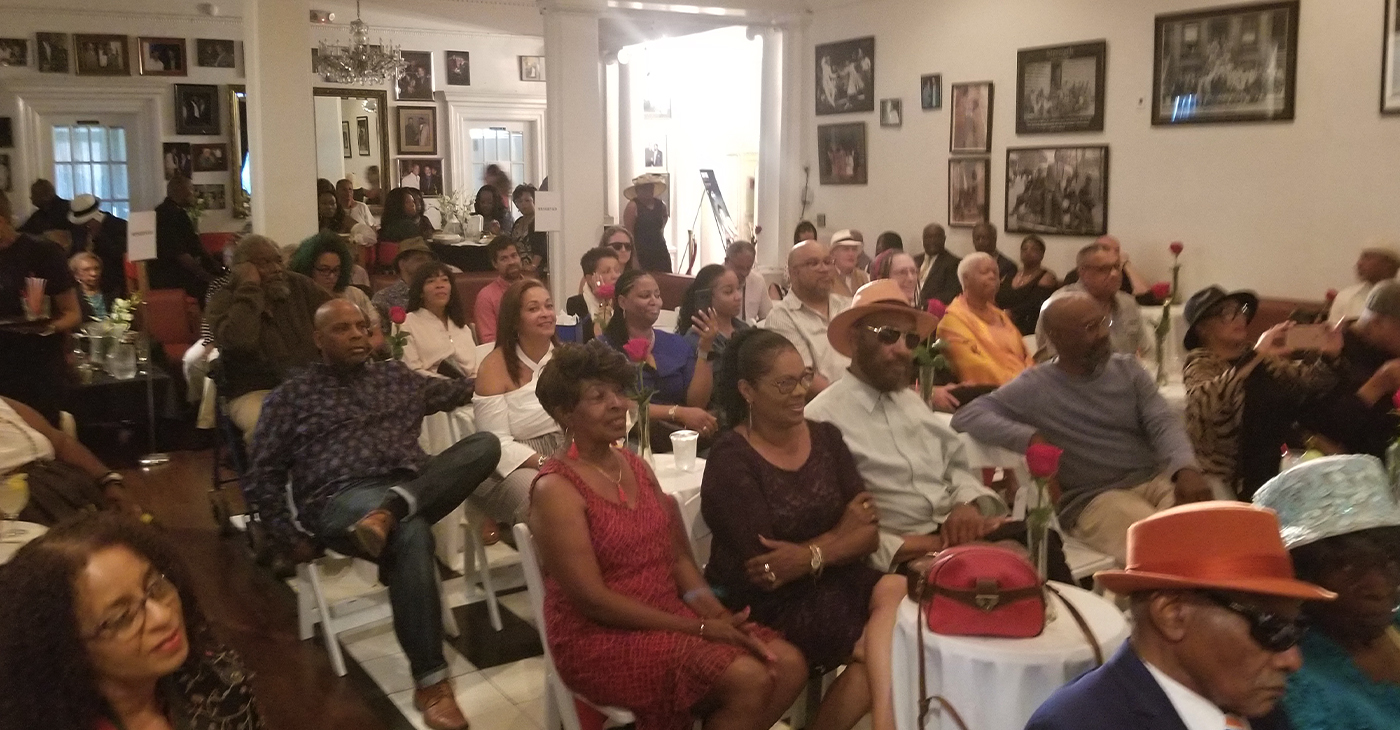
Special to The Post
We respectfully request that you vote “No” on the City Council resolution regarding Tidewater Franklin Street development due to be scheduled on the Jan. 16 City Council agenda.
Tidewater’s proposed development will harm Geoffrey’s Inner Circle through its very construction, in much the same way that another nearby Black business, Uncle Willie’s Original Bar-B-Que and Fish, was devastated by the construction of a 27-story hotel tower adjacent to the historic building that housed this venerated Black business.
Further, the Planning Commission made many errors in its approval process, including but not limited to the following:
- Its members acknowledged that they were not even aware that the Black Arts Movement and Business District existed.
- It ignored the fact that Geoffrey’s was entitled to critical protections as a recognized historic resource.
- It ignored the fact that Tidewater had not sought permits or permission to alter Mr. Pete’s building, although such alterations are an integral part of Tidewater’s proposal.
- The Planning Department did not provide, in a timely manner, relevant Public Records Act information requested by the appellant.
In addition, the Planning Department staff has refused to meet with Mr. Geoffrey Pete throughout the appeal process. Sadly, it also appears that the City’s own Department of Race and Equity has been bypassed on a matter with significant equity implications.
It should also be noted that there are dozens of studies indicating that residential construction like Tidewater’s drives out live entertainment venues. Many cities have laws to regulate such potential conflicts.
Geoffrey’s is a critical business to the Oakland community as a whole, and particularly to the African American community.
It has been a place of comfort and camaraderie for thousands of people who have listened to music, held celebrations, funeral repasts, and community meetings. And, Pete hosts an incubator program which has provided a haven for business owners who would not have had success if not housed in his building with below market-rate rent and other amenities, thus enabling them to survive in the ever-more costly downtown area.
The African American population in Oakland has decreased from 47% in the 1980s to 22% currently. A large part of the reason has been City policies which privilege the desires of wealthy developers over the needs of the Black community.
There are questions about housing and other matters which are too lengthy for this letter; we would be happy to discuss all of these with you.
We urge you in the strongest terms to support Geoffrey’s and refuse to vote in support of any measure presented to you that would allow Tidewater’s construction next to Geoffrey’s.
Signers (partial list):
Organizations
Black Women Organized for Political Action, Oakland Berkeley Chapter
Oakland East Bay Democratic Club
Block by Block Organizing Network
John George Democratic Club, Steering Committee
Niagara Movement Democratic Club
Everett and Jones Bar-B-Que
Uncle Willie’s Bar-b-Que and Fish
Joyce Gordon Gallery
Pastors:
Pastor Phyllis Scott, president, Pastors of Oakland
Rev. Dr. Lawrence Van Hook, Community Church
Rev. Dr. Jasper Lowery, International Outreach Ministries
Pastor Cornell Wheeler, Greater Whittington Temple, COGIC
Rev. Dr. Joe Smith, Good Hope MBC
Bishop Brandon Rheems, Center of Hope Community Church
Pastor Daniel Stevens, GreaterNew Life COGIC
Pastor Joseph Thomas, New Hope COGIC
Bishop Joseph Nobles, Dancey Memorial COGIC
Pastor Edwin Brown, Market Street Seventh Day Adventist
Bishop J.E. Watkins, Jack London Square Chapel COGIC
Rev. Kenneth Anderson, Williams Chapel MBC
Rev. Germaine Anderson, People’s MBC
Bishop Marcel Robinson, Perfecting Ministries
Pastor K J Williams, New Beginnings Church
Rev. Dr. Jeremiah Captain, Glad Tidings
Bishop George Matthews, Genesis Worship Center
Rev. Dr. David Franklin, Wings of Love SDA Church
Bishop Anthony Willis, Lily of the Valley Christian Center
Bishop L E Franklin, Starlight Cathedral
Rev. Dr. Sylvester Rutledge, North Oakland MBC
Pastor Raymond Lankford, MSW, Voices of Hope Community Church
Minister Candi Thornton, Arsola House Ministries
Rev. Dr. Joseph Jones, Alpha and Omega Ministries
Superintendent Dan Phillips, Greater Grace Temple, COGIC
Individuals:
Walter Riley, Attorney at Law
Corrina Gould, Tribal chair of Confederated Villages of Lisjan/Ohlone
Zach Norris, Open Society Foundation Fellow
Raymond Bobbitt, Business
Doug Blacksher
Terryn Niles Buxton, business
Lauren Cherry, School Administrator
Allene Warren
Nirali Jani, PhD, Professor of Education
Frankie Ramos, PhD, community organizer
Henry Hitz, Educator
Sheryl Walton, Community Organizer
Vincent Tolliver, Musician
Eleanor Stovall, Educator
Kitty Kelly Epstein, PhD, Professor of Urban Studies, and Education
-

 Activism4 weeks ago
Activism4 weeks agoOakland Post: Week of March 27 – April 2, 2024
-

 #NNPA BlackPress4 weeks ago
#NNPA BlackPress4 weeks agoCOMMENTARY: D.C. Crime Bill Fails to Address Root Causes of Violence and Incarceration
-

 #NNPA BlackPress4 weeks ago
#NNPA BlackPress4 weeks agoMayor, City Council President React to May 31 Closing of Birmingham-Southern College
-

 #NNPA BlackPress4 weeks ago
#NNPA BlackPress4 weeks agoBeloved Actor and Activist Louis Cameron Gossett Jr. Dies at 87
-

 Community1 week ago
Community1 week agoFinancial Assistance Bill for Descendants of Enslaved Persons to Help Them Purchase, Own, or Maintain a Home
-

 Activism3 weeks ago
Activism3 weeks agoOakland Post: Week of April 3 – 6, 2024
-

 Business1 week ago
Business1 week agoV.P. Kamala Harris: Americans With Criminal Records Will Soon Be Eligible for SBA Loans
-

 Activism2 weeks ago
Activism2 weeks agoOakland Post: Week of April 10 – 16, 2024



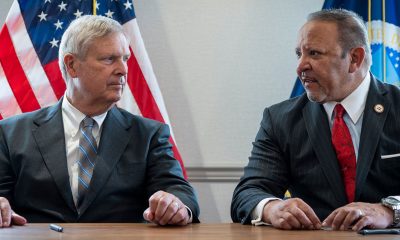

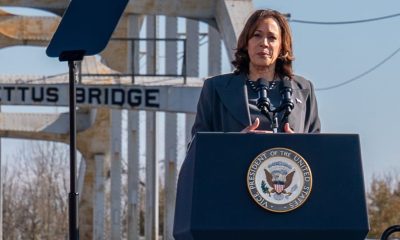

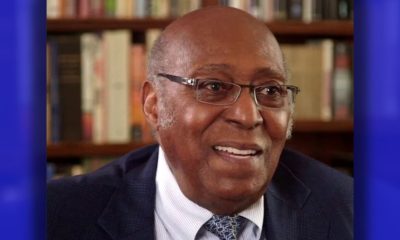

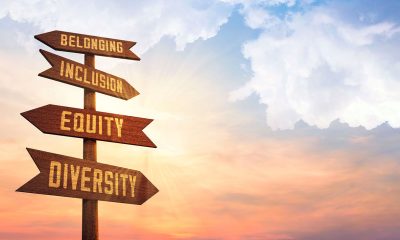

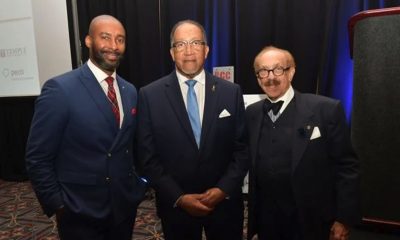

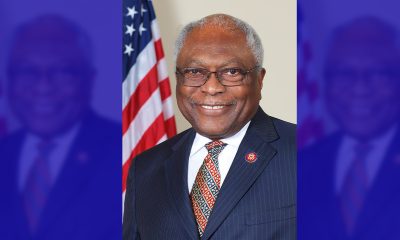












































Pingback: Oh No, President Johnson Didn’t Mastermind Selma Marches, Says Civil Rights Leader | BlackExpoNet
Pingback: Oh No, President Johnson Didn’t Mastermind Selma Marches, Says Civil Rights Leader | BlackExpoNet
Pingback: Diane Nash Says President Johnson Didn’t Mastermind Selma Marches | News One
Pingback: Diane Nash Says President Johnson Didn’t Mastermind Selma Marches | News One
Pingback: Diane Nash Says President Johnson Didn’t Mastermind Selma Marches | Spirit 1340
Pingback: Diane Nash Says President Johnson Didn’t Mastermind Selma Marches | Spirit 1340
Pingback: Diane Nash Says President Johnson Didn’t Mastermind Selma Marches | MyPraise 102.5, Atlanta, Inspiration, Gospel, Radio, WPZE
Pingback: Diane Nash Says President Johnson Didn’t Mastermind Selma Marches | MyPraise 102.5, Atlanta, Inspiration, Gospel, Radio, WPZE
Pingback: Diane Nash Says President Johnson Didn’t Mastermind Selma Marches | WCHB-AM: NewsTalk 1200
Pingback: Diane Nash Says President Johnson Didn’t Mastermind Selma Marches | WCHB-AM: NewsTalk 1200
Pingback: Diane Nash Says President Johnson Didn’t Mastermind Selma Marches | 105.9 Kiss-FM
Pingback: Diane Nash Says President Johnson Didn’t Mastermind Selma Marches | 105.9 Kiss-FM
Pingback: Diane Nash Says President Johnson Didn’t Mastermind Selma Marches | The Buzz 1230 AM
Pingback: Diane Nash Says President Johnson Didn’t Mastermind Selma Marches | The Buzz 1230 AM
Pingback: Diane Nash Says President Johnson Didn’t Mastermind Selma Marches | WTPS 1240 AM
Pingback: Diane Nash Says President Johnson Didn’t Mastermind Selma Marches | WTPS 1240 AM
Pingback: Diane Nash Says President Johnson Didn’t Mastermind Selma Marches | Foxy 107.1-104.3
Pingback: Diane Nash Says President Johnson Didn’t Mastermind Selma Marches | Foxy 107.1-104.3
Pingback: Diane Nash Says President Johnson Didn’t Mastermind Selma Marches | Boom 107.9 Philly
Pingback: Diane Nash Says President Johnson Didn’t Mastermind Selma Marches | Boom 107.9 Philly
Pingback: Diane Nash Says President Johnson Didn’t Mastermind Selma Marches | Power 107.5
Pingback: Diane Nash Says President Johnson Didn’t Mastermind Selma Marches | Power 107.5
Pingback: Diane Nash Says President Johnson Didn’t Mastermind Selma Marches | Old School 100.3
Pingback: Diane Nash Says President Johnson Didn’t Mastermind Selma Marches | Old School 100.3
Pingback: Diane Nash Says President Johnson Didn’t Mastermind Selma Marches | 106.7 WTLC
Pingback: Diane Nash Says President Johnson Didn’t Mastermind Selma Marches | 106.7 WTLC
Pingback: Diane Nash Says President Johnson Didn’t Mastermind Selma Marches | Praise 104.7
Pingback: Diane Nash Says President Johnson Didn’t Mastermind Selma Marches | Praise 104.7
Pingback: Diane Nash Says President Johnson Didn’t Mastermind Selma Marches | Praise 103.9
Pingback: Diane Nash Says President Johnson Didn’t Mastermind Selma Marches | Praise 103.9
Pingback: Diane Nash Says President Johnson Didn’t Mastermind Selma Marches | Hot 96.3
Pingback: Diane Nash Says President Johnson Didn’t Mastermind Selma Marches | Hot 96.3
Pingback: Diane Nash Says President Johnson Didn’t Mastermind Selma Marches | AM 1310: The Light
Pingback: Diane Nash Says President Johnson Didn’t Mastermind Selma Marches | AM 1310: The Light
Pingback: Diane Nash Says President Johnson Didn’t Mastermind Selma Marches | Praise 102.7
Pingback: Diane Nash Says President Johnson Didn’t Mastermind Selma Marches | Praise 102.7
Pingback: Oh No, President Johnson Did Not Mastermind Selma Marches, Says Civil Rights Leader | Black Community Information Center
Pingback: Oh No, President Johnson Did Not Mastermind Selma Marches, Says Civil Rights Leader | Black Community Information Center
Pingback: Diane Nash Says President Johnson Didn’t Mastermind Selma Marches | Praise 104.1
Pingback: Diane Nash Says President Johnson Didn’t Mastermind Selma Marches | Praise 104.1
Pingback: Diane Nash Says President Johnson Didn’t Mastermind Selma Marches | WOL-AM 1450
Pingback: Diane Nash Says President Johnson Didn’t Mastermind Selma Marches | WOL-AM 1450
Pingback: Diane Nash Says President Johnson Didn’t Mastermind Selma Marches | WOLB Talk 1010
Pingback: Diane Nash Says President Johnson Didn’t Mastermind Selma Marches | WOLB Talk 1010
Pingback: Diane Nash Says President Johnson Didn’t Mastermind Selma Marches | Hot 107.9
Pingback: Diane Nash Says President Johnson Didn’t Mastermind Selma Marches | Hot 107.9
Pingback: Diane Nash Says President Johnson Didn’t Mastermind Selma Marches | Majic 107.5, Atlanta, R&B, Radio, Steve Harvey, WAMJ, 97.5
Pingback: Diane Nash Says President Johnson Didn’t Mastermind Selma Marches | Majic 107.5, Atlanta, R&B, Radio, Steve Harvey, WAMJ, 97.5
Pingback: Diane Nash Says President Johnson Didn’t Mastermind Selma Marches | 99.3-105.7 Kiss FM
Pingback: Diane Nash Says President Johnson Didn’t Mastermind Selma Marches | 99.3-105.7 Kiss FM
Pingback: Diane Nash Says President Johnson Didn’t Mastermind Selma Marches | Praise 100.9 & 92.7
Pingback: Diane Nash Says President Johnson Didn’t Mastermind Selma Marches | Praise 100.9 & 92.7
Pingback: Diane Nash Says President Johnson Didn’t Mastermind Selma Marches | The Light 103.9 FM
Pingback: Diane Nash Says President Johnson Didn’t Mastermind Selma Marches | The Light 103.9 FM
Pingback: Oh No, President Johnson Did Not Mastermind Selma Marches, Says Civil Rights Leader - ButThatsNoneOfMyBusiness.com
Pingback: Oh No, President Johnson Did Not Mastermind Selma Marches, Says Civil Rights Leader - ButThatsNoneOfMyBusiness.com